
MoU signed for free distribution of gas stoves and cylinders
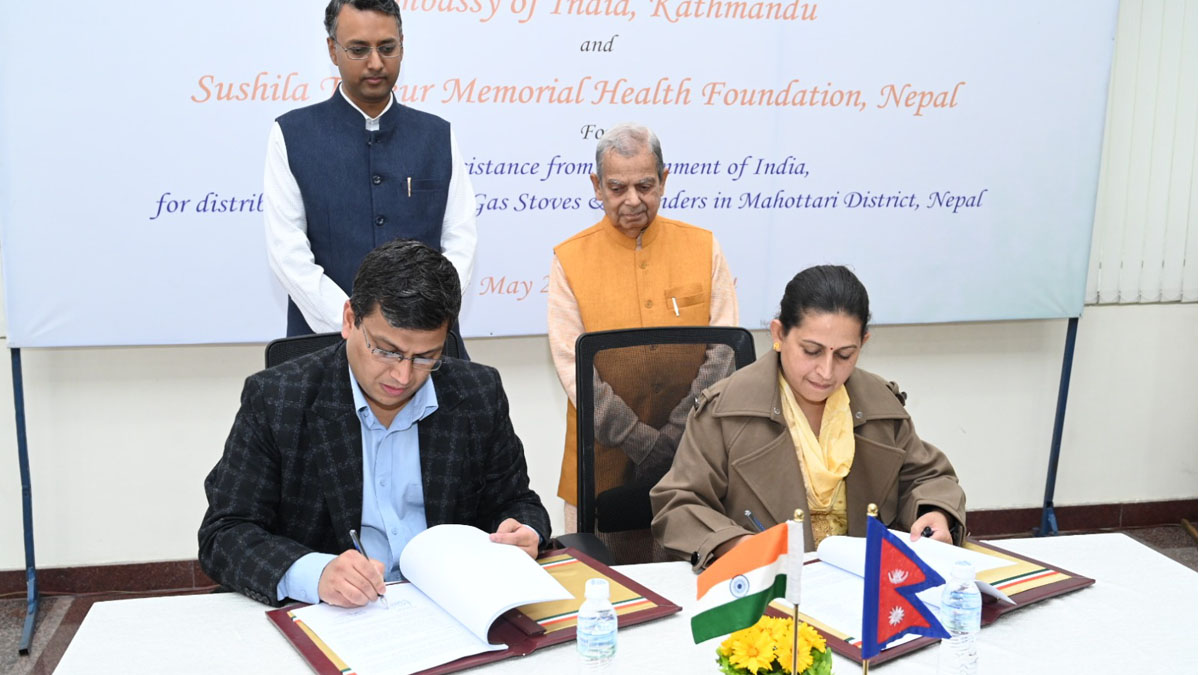
Nearly 8,000 underprivileged and marginalized families of five Municipalities in Mahottari District of Madhesh Province are to be freely provided with LPG has stoves and cylinders under India-Nepal Development Cooperation.
To this effect, an memorandum of understanding (MOU) was signed between the Embassy of India, Kathmandu and Sushila Thakur Memorial Health Foundation (STMHF) on Thursday.
At a programme organized here today, the MoU was signed by first secretary of Indian Embassy Karun Bamshal and Foundation Director Sushila Thakur under India-Nepal Development Cooperation.
With the Indian grant assistance of approximately Rs 50 million, the project would benefit the underprivileged and marginalized families of Mahottari, the MoU stated.
The project is inspired by Government of India’s Pradhan Mantri Ujjwala Yojana which is a flagship scheme with an objective to make clean cooking fuel such as LPG available to the rural and deprived households which were otherwise using traditional cooking fuels such as firewood, coal, cow-dung cakes etc.
Since 2003, India has taken up over 535 High Impact Community Development Projects in Nepal and has completed 478 projects.
Amongst these, 81 projects are in Mahdesh Pradesh including six projects in Mahottari District. In addition to these, Government of India has gifted 23 ambulances to various hospitals and health posts in Mahottari District. As close neighbours, India and Nepal share wide-ranging and multi-sectoral cooperation.
The implementation of these projects reflects the continued support of the Government of India in bolstering the efforts of the Government of Nepal in uplifting the livelihood of its people, it is noted in the MoU.
- Over 1,000 Fire Incidents Reported in Five Months; 16 Lives Lost
- Earthquake Safety Day: A Call for Stronger Preparedness and Resilience
- Government Ordinance Driven by Necessity, Not Intention: Minister Prithvi Subba Gurung
- Dr. Shekhar Koirala Highlights Nepal-Britain Relations and Future Aspirations at British Parliament

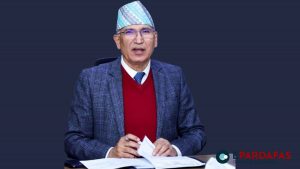
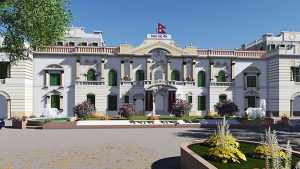

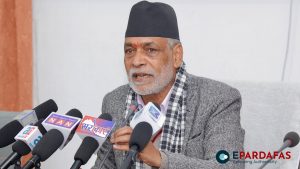
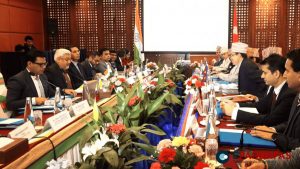

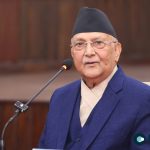




Comments